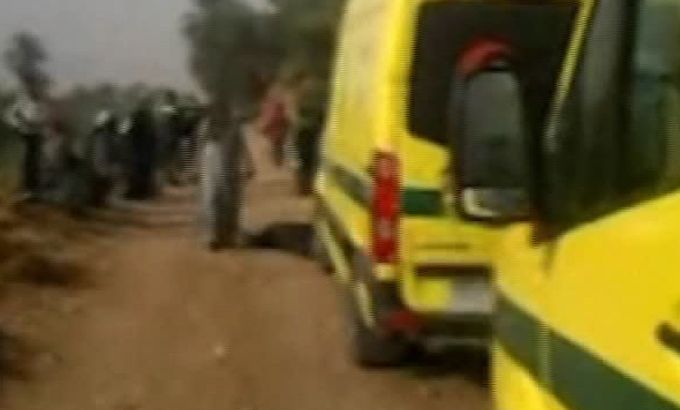Egypt authorities suspend balloon flights
The measure follows the death of 19 foreign tourists when a hot-air balloon crashed near Luxor in the country’s south.

Egyptian authorities have suspended hot air balloon flights after 19 people died when a hot-air balloon crashed near Luxor in the country’s south.
Ezzat Saad, the governor of Luxor province, imposed an immediate ban on all hot-air balloon flights in the province as Egyptian Prime Minister Hesham Qandil ordered an investigation into the accident.
Keep reading
list of 4 itemsWhy are nations racing to buy weapons?
Parallel economy: How Russia is defying the West’s boycott
US House approves aid package worth billions for Ukraine, Israel
The balloon was carrying at least 20 foreign tourists when it went down near the tourist town on Tuesday, state-run Nile TV said.
Bodies of the dead tourists were scattered across the field around the remnants of the balloon. A security official, who spoke on condition of anonymity because he was not authorised to speak to the media, said 18 bodies had been recovered at the crash site.
Health officials speaking on condition of anonymity said the death toll from a hot air balloon accident in Egypt rose to 19 after a British tourist died of his injuries.
Foreign nationals
Al Jazeera’s Sherine Tadros, reporting from Cairo, said the tourists aboard the balloon included Chinese, Japanese, Hungarian, French and British citizens.
The head of Japan Travel Bureau’s Egypt branch, Atsushi Imaeda, confirmed that four Japanese died in the crash.
Raymond Ng Do-Wing of the Hong Kong travel agency Kuoni said there was a “very big chance” that nine of the Hong Kong tourists aboard the balloon had died.
 |
In Britain, tour operator Thomas Cook confirmed that two British tourists were dead.
Three survivors of the crash, including two British tourists and the Egyptian pilot of the balloon, were taken to the hospital.
An employee of Sky Cruise, the company operating the balloon, told AFP news agency that the pilot and one of the tourists survived by jumping out of the basket before it plunged to the ground.
Accusations also emerged that authorities had let safety standards decline amid the political turmoil and infighting, although civil aviation officials said the balloon had been inspected recently and that the pilot may have been to blame, jumping out rather than stopping the fire.
Konny Matthews, an assistant manager of Luxor’s Al Moudira Hotel, said she heard a boom around 7am (0500 GMT).
“It was a huge bang. It was a frightening bang, even though it was several kilometres away from the hotel,” she said by phone.
“Some of my employees said that their homes were shaking.”
Past incidents
Although hot-air balloon accidents in Egypt have led to injuries in the past, there has been “nothing on this scale” since ballooning in the area began in 1989, our correspondent said.
In 2009, 13 tourists were injured when their hot-air balloon crashed near Luxor.
At the time, sources said the balloon was overcrowded.
Luxor is 510km south of Cairo, Egypt’s capital.
It is one of Egypt’s most renowned archaeological sites, home to the famous Valley of the Kings and the grand Temple of Hatshepsut.
Egypt’s tourism industry suffered a sharp downturn in visitor numbers since the 2011 uprising that toppled President Hosni Mubarak, with two years of political instability scaring off foreign tourists.
Al Jazeera’s Tadros said tourists have been reluctant to visit Cairo and the Sinai Peninsula because of political turmoil and violence.
The area around Luxor and Aswan “was the last place where tourists were really comfortable in coming. So it comes as very bad news for the country, given the economic situation and Egypt’s reliance on tourism”, she said.